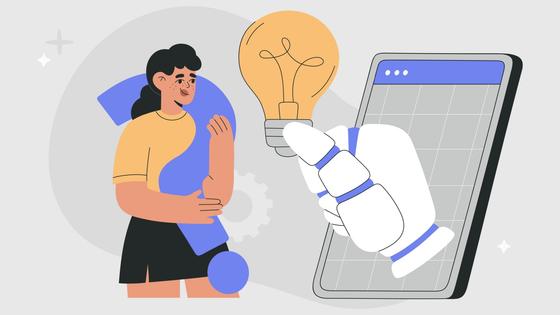Less than 10% of British students refuse to use AI for studying
A study published by the independent think tank The Higher Education Policy Institute has shown that the use of artificial intelligence by British students has surged dramatically.

Over 90% of university students now use neural networks and chatbots in some way during their studies. Last year, only 66% of students used AI.
Most often, students utilize the capabilities of chatbots to explain complex topics, summarize articles, and generate new ideas. In addition, a significant number of students-18%-use AI-generated texts in their own research work. Students claim that AI saves them time and improves the quality of their education.
The survey also revealed differences in attitudes toward the use of AI among respondents of different gender and social groups. For instance, men use artificial intelligence more enthusiastically than women. AI is also more frequently used by students from affluent families. Students studying STEM subjects-science, technology, engineering, and mathematics-are more actively integrating chatbots into the educational process. Meanwhile, there are fewer advocates of using AI in studies among humanities students.
The majority of respondents believe that universities are responding appropriately to changes in the field of education. For example, 80% of students consider their universities' AI policies clear and transparent, and 76% are confident that instructors can identify work created using neural networks. However, only 36% have received training in how to interact competently with artificial intelligence at their universities. Nevertheless, only 8% of them do not use artificial intelligence. What holds students back are mainly concerns that instructors will detect AI usage, as well as doubts about the reliability of information obtained from neural networks.
Dr. Thomas Lancaster, a research fellow at Imperial College London, believes that students who do not use generative AI put themselves at a disadvantage. Their refusal to embrace modern technology may later negatively impact their future careers and employment prospects.
According to the report's author Josh Freeman, universities must embrace the rapid changes in the education sector-for example, by organizing professional retraining for instructors, teaching students how to use AI responsibly, and introducing new methods of knowledge assessment.












 Freelancing, Remote Work, Office Jobs, or Consulting: How to Choose the Work Format That’s Right for You
Freelancing, Remote Work, Office Jobs, or Consulting: How to Choose the Work Format That’s Right for You
 Test: How Prone Are You to Abusive Behavior as a Manager?
Test: How Prone Are You to Abusive Behavior as a Manager?
 The Psychology of Decision-Making: 7 Traps Leaders Are Most Likely to Fall Into
The Psychology of Decision-Making: 7 Traps Leaders Are Most Likely to Fall Into
 Test. What superpower would you possess if you were a superhero?
Test. What superpower would you possess if you were a superhero?
 Test. What Should You Let Go of Before Winter Ends?
Test. What Should You Let Go of Before Winter Ends?
 Test. Which Ritual Should You Start Practicing This Winter?
Test. Which Ritual Should You Start Practicing This Winter?
